NICOLE GEORGE-MIDDLETON SENIOR VP, MEMBERSHIP AT ASCAP

Nicole George-Middleton is the Senior Vice President, Membership at ASCAP. She’s been with the company for nine years…
by Kevin Ross
An entertainment attorney by trade, Middleton developed an interest in music from her mother who wrote/writes songs as a hobby. She manages a team in New York, Atlanta, and Los Angeles and makes sure her team is up to date on every aspect of growing technology to ensure ASCAP songwriters are compensated fairly. Here she offers some often overlooked insight on what it takes to be successful in the entertainment industry along with great advice for Women of Color in Media.
As you are an attorney by trade, did you always have an interest in music?
Yes, I was exposed to music and songwriting at an early age because my mom wrote songs as a hobby (she still does when she has time). So music has always piqued my interest. When I decided to go to law school and was trying to figure out what to specialize in, entertainment—specifically music—made the most sense, because it would provide me an opportunity to work in a field that had always inspired me.
Has your skill as an attorney benefited you in your current position?
I think so. I believe my training as an entertainment attorney gives me deeper insight into the issues songwriters face with respect to music publishing and copyright law as a whole. As a result, I can be a stronger advocate for them.
Are there times that you miss being an attorney?
I’ll always be an attorney. I worked hard for that “Esq.” behind my name, but I really love what I’m doing now.
Tell us about your team.
I have an awesome staff in New York, Atlanta, and Los Angeles. They’re extremely talented and creative. They each have amazing relationships and a good ear for music. This allows them to be an invaluable resource for our songwriters. They’re also really supportive of each other, which is key. We really are a team.
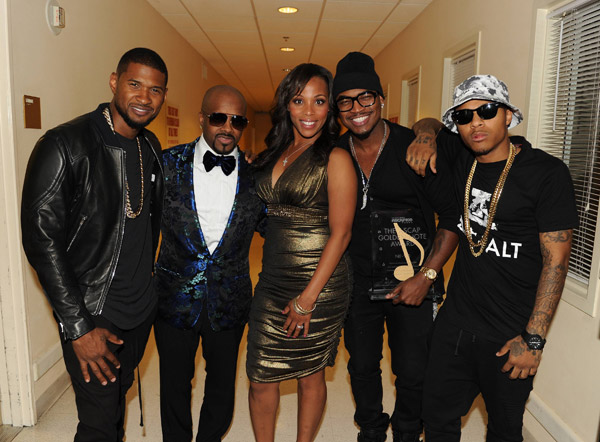
What is a typical day like for you?
Whenever I’m not traveling, my mornings are dedicated to my kids because often times I don’t return home from work until they’re fast asleep. So I make it a point to spend quality time with them in the morning. Once they’re off to school/camp, then my day revs up quickly and is filled with phone calls and a combination of meetings with my team, senior management, songwriters and/or their representatives, and it continues well into the evening with after-work meetings, dinners, and industry events.
How many hours a day do you work on average?
It’s hard to calculate, work really never stops. I just have to force myself to put my phone down some time.
“Never stop trying. Take the meeting, even if it seems invaluable. Listen. Learn. Meet everyone. Remember people. Take care of the people who take care of you”
I see that you are often relegated as “Powerful” and “Boss” in many stories written about you. Do you think people are remotely aware of how much hard work it takes to do what you do?
Hopefully, they gain more insight into what it really takes through articles like this, but I try to emphasize whenever I can that it’s not all glamorous; it’s enjoyable, but it does consist of a lot of hard work and long hours.
Do you feel they should understand the hard work aspect more often?
Individuals that want to pursue a similar career should definitely do their research to fully understand how much work and sacrifice goes into a career like this.
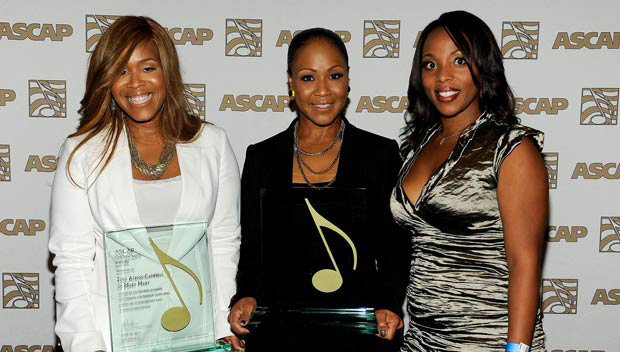
What is the most challenging aspect of technology for you?
Keeping up with it. It changes so rapidly.
What makes ASCAP stand out from competitors?
ASCAP is the only member-owned and run PRO—our board is made up entirely of songwriters and publishers. We operate on a non-profit basis, and 88 cents of every dollar we collect goes back to our members as royalties. Everything ASCAP does is aimed at protecting the rights of music creators and defending the fair market value of their music in the marketplace. Our mission is to fight for music creators, who are the heart and soul of the music industry.
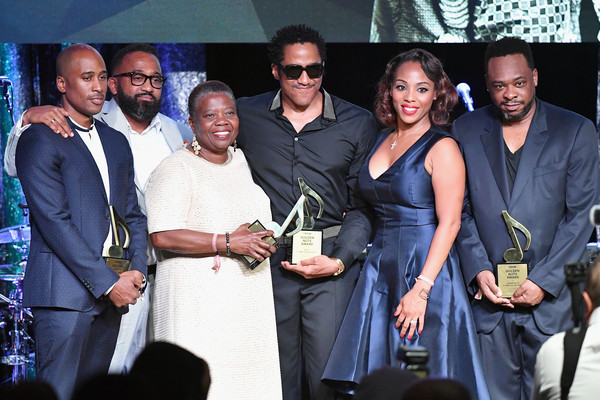
Your organization holds several events and awards during the year. Tell us about some of those events.
We just hosted our 30th annual Rhythm & Soul Music Awards in June. It’s our biggest event of the year and one of my favorites because we get to celebrate the individuals behind the songs we all know and love.
This year, we posthumously honored Biggie with the ASCAP Founder’s Award and Jimmy Jam and Terry Lewis with the ASCAP Voice of Music Award. It was such a fun night. In addition to award shows, we also host events that help our songwriters hone in on the business and craft of songwriting, like the ASCAP EXPO, which is the only national conference dedicated to songwriting and composing, and The Collective, a three-day songwriting workshop where budding songwriters are paired up with veteran industry mentors and taught the ins and outs of how to write a hit song.
What do you estimate is your greatest career achievement at this point?
I think one of my greatest career achievements at this point is being able to balance my demanding work schedule with my personal schedule as a wife and mom. It’s challenging, but I’ve found a system that works and I’m proud of that.
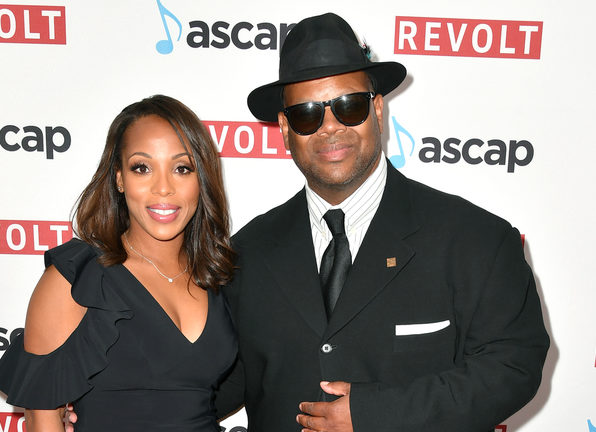
What do you deem are the vital tools for success and longevity in the industry as a songwriter?
I think the best thing a songwriter can do to ensure his/her longevity in this business is educating himself/herself on the business surrounding songwriting so that he/she is not just relying on what people tell them. You have to invest in yourself in order to really be successful, and part of that investment should be to educate yourself on the ins and outs of your craft.
Do you find that songwriters want to also perform or are most dedicated to songwriting only?
It varies. Some songwriters are also performers and some choose to stay behind the scenes and just write. That’s the beauty of songwriters; they come in all different forms and fashions.
With so many mediums, movies, TV, commercials, radio, streaming, podcasts, internet radio, restaurants, etc. how do you keep track of your artists being paid fairly?
Our main role is to make sure our members are fairly compensated when their music is performed in public. We do this by negotiating with and collecting license fees from the users of music who perform the 10.5 million works in our repertory and send the money to our members as royalties.
We use cutting-edge technology to track, match, process, and pay on a trillion performances each year. As music usage has changed and technology has become more sophisticated and economical, ASCAP has continuously innovated to put more money in the pockets of ASCAP members. For example, the digital data we get from radio and streaming services get processed by ASCAP’s award-winning Audio Performance Management (APM) platform, which matches performance data to the works registered in ASCAP’s databases.
The music landscape constantly changes; is there an average lifespan for a songwriter or do you have some who are still successful after decades? Who are some of them?
In my opinion, there is no lifespan for a songwriter. Look at ASCAP’s Chairman and President of the Board, Paul Williams, he’s been writing classic songs since the 70s and won a Grammy for a song he co-wrote with Daft Punk in 2014.
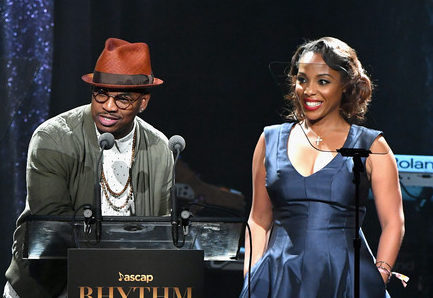
What do you do when you find yourself feeling overwhelmed?
I stop what I’m doing to just breathe. Sometimes we get so caught up in whatever we’re doing we forget to just breathe. I also take walks. Walking is therapeutic for me.
What are some of your hobbies outside of the industry?
Honestly, spending time with my family is what I do most when I’m not working. It’s become my favorite pastime. My kids are also involved in lots of activities, so my husband and I spend most our free time supporting them in their activities. I do love to read, and when I can find a spare minute that’s what I’ll do.
SEE THE OTHER WOMEN OF COLOR IN MEDIA 2017 INTERVIEWS
If you had just 60 seconds to tell a room full of young women of color how to succeed in the media industry, what would you tell them?
I would tell them to network as much as they can. Relationships are key in this industry. I would tell them to always maintain their integrity and be women of their word. Lastly, I would tell them not to be afraid to use their voice to advocate for themselves. Closed mouths don’t get fed.
Get your copy of this monumental issue while they last for just $20,00. Click below

